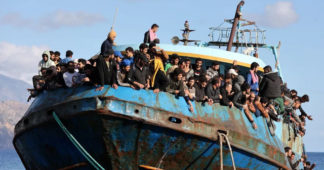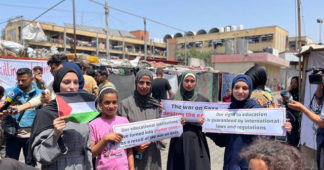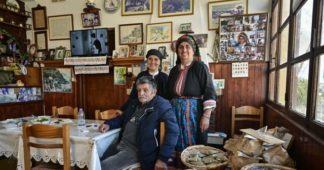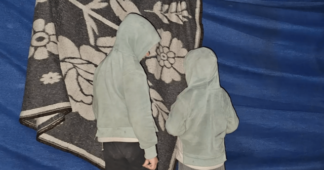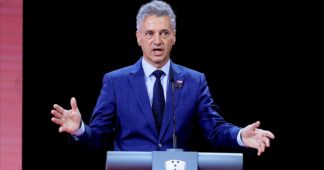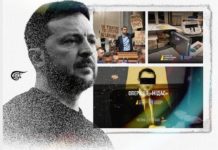By Eleni Phufas-Jousma
Jul 16, 2025
In the tranquil and rustic confines of Gavdos, a small island off the southern coast of Crete and the southernmost geographical point of Europe, tragedy has struck. A close-knit family is now in shock and mourning, facing an uncertain future. The unexpected death of a local shepherd—a well-known and respected family man—has cast a shadow over the island, renowned for its natural beauty and serene landscapes.
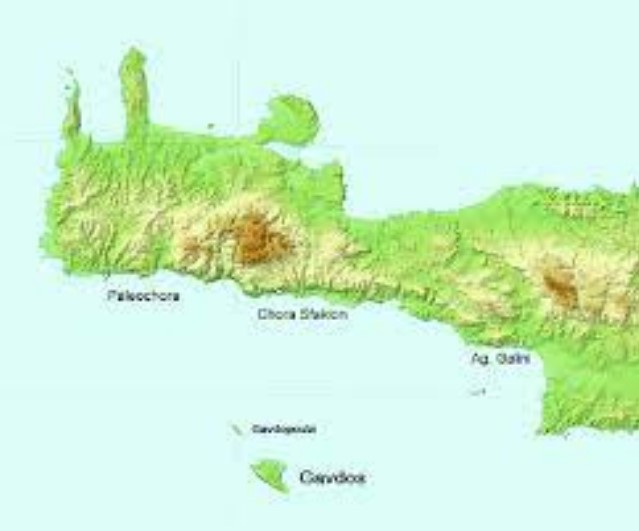
This writer has a personal acquaintance with the family, beginning a few years ago. I became involved in offering online English classes to the two older Lougiakis children. (The youngest of the three, Damoulis, was one of only two children in the elementary school for whom the Ministry of Education provided a teacher.)
But why online? And why was the family left with no option but to locate teachers outside the official ministry system, relying on volunteers?
At the time (and still today, with the situation woefully inadequate), the Greek government failed to provide teachers for all the subjects the children needed. Shocking—and truly distressing—was the Ministry of Education’s response: if the family wanted their children to receive an education, they would need to move to Crete, several hours away by ferry and then several more by bus. In other words, they were told to uproot their lives, relocate, and resettle—becoming migrants in their own land. It was an overwhelming and daunting prospect.
Unperturbed, the children’s parents, Efi and Nikolaos Lougiakis, took matters into their own hands. They found teachers willing to instruct their children online for an entire year. For me, it was an amazing and joyous experience interacting with Nikolas (then 12, now 14) and Kely (then 11, now 13), although the lessons were at times frustrating due to satellite connection issues and weather conditions. In any case, the children proudly passed their final exams in Chania, Crete, that year—and the next.

The Shepherd’s Legacy
The father and husband of this remarkable family was Nikolaos Lougiakis—a man dedicated to his craft of animal herding, a respected figure on the magical island of Gavdos. He leaves behind a grieving wife and three young children, now orphaned and struggling to cope with their loss. His role extended far beyond tending to livestock and pastures; he was a pillar of the community, always ready to lend a hand and share his wisdom. The void left by his passing is palpable. His family now faces the daunting task of rebuilding their lives without him.
Challenges for the Family
Efi, the shepherd’s widow, is now the sole provider for their children—a role she must embrace body and soul amid overwhelming grief. While the island community sympathizes with the new reality facing Nikos’ family, few are able to support them in a meaningful way. The family’s future remains uncertain. The children, who looked up to their father for strength and guidance, must now navigate their lives without him, clinging to the memories and lessons he left behind.
But Gavdos itself also finds itself in the midst of changes—some of them worrisome. It is an island in transition. While picturesque, Gavdos faces serious challenges. Its geographic location has made it a stopping point for thousands of illegal migrants seeking refuge and a better life in Europe. This influx has introduced a complex social and economic dynamic, straining resources and testing the resilience of its inhabitants. The shepherd’s death adds another layer to an already fragile environment, impacting the island’s residents in multiple ways.
The widow now faces not only personal loss but the risk of her family being further disrupted by external forces vying for control. Adding to Gavdos’ migration challenges are the ambitions of oil and gas companies eager to exploit potential reserves beneath the island’s soil and waters. These corporate giants—driven by profit and indifferent to local impact—threaten the island’s fragile ecology and cultural heritage.
Among them are ExxonMobil and Helleniq Energy, both of which have secured licenses to explore offshore blocks near Crete and are evaluating seismic data for potential gas reserves. Chevron has also expressed interest in blocks off Crete, as well as south of Crete and southwest of the Peloponnese. The Greek state has recently accepted Chevron’s interest and is preparing to launch a tender for offshore oil and gas exploration.
How can the Greek people effectively respond to these looming threats when the government itself fails to provide even basic education and infrastructure for its island residents?
Despite these pressures, the people of Gavdos remain mostly steadfast in their resolve. They know that preserving their way of life and protecting their environment is deeply tied to their identity. The island’s beauty and tranquility—now under threat—are worth defending. Sadly, Nikolaos Lougiakis will be absent from the coming clamor and debates over control of the ancient Mediterranean waters off Gavdos and Crete.

Looking Ahead
As Gavdos navigates the turbulent waters of change, the shepherd’s death stands as a poignant reminder of both the fragility and the strength of human life. His family’s future, though uncertain, is buoyed by the unwavering support of some members of their community—and of Hellenophiles and members of the Greek diaspora abroad. The island, though small and vulnerable, remains a haven of hope, powered by the collective will of its people to protect what they hold dear.
The shepherd’s passing is a testament to the enduring spirit of Gavdos—where loss is met with resilience, and the future is shaped by a united community.
Efi Georgakas-Lougiakis, the strong-willed widow, is an active participant in daily life on Gavdos, advocating for improved medical care and communication services for its residents. Now she must grapple with a new reality after the loss of her husband. She finds comfort in the steady support of family and friends. This close-knit community, once bound by tradition and shared hardship, strives to remain a bulwark against the uncertainties looming over their island home.
Within the family home, the echoes of Nikos Lougiakis’ love and wisdom continue to guide his children. He taught them perseverance, family, and independence—values that will serve as the bedrock of their strength as they grow. I have no doubt these lessons will shape them into resilient individuals, ready to face the world with the same courage their father embodied.
A Wider Meaning
In a broader sense, Gavdos stands as a microcosm of resilience in the face of global—and national—challenges. The island’s responses to adversity—whether due to migration, corporate exploitation, lack of infrastructure, or personal tragedy—reveal a universal truth: that unity and shared purpose can empower even the smallest communities to stand firm against the tides of change.
As the sun sets over the rugged, sea-kissed landscape of Gavdos, the legacy of Nikos Lougiakis endures as a beacon of hope and strength. His family, though facing an uncertain future, does so with the knowledge that they are not alone. The island, with its resilient spirit and tenacious people, remains a testament to the power of community in adversity.
Nikos’ family is a beacon of persistence in the storms of hardship. Many people of goodwill will undoubtedly rally to support the shepherd’s family—offering time, prayers, emotional comfort, and material resources. They are determined to preserve their way of life, resisting the encroachments of both illegal migration and corporate exploitation. The shepherd’s legacy—marked by kindness and resilience—inspires us all to stand firm in the face of these challenges.
Read also The “Immortals”: From Chernobyl to Gavdos, Crete
We remind our readers that publication of articles on our site does not mean that we agree with what is written. Our policy is to publish anything which we consider of interest, so as to assist our readers in forming their opinions. Sometimes we even publish articles with which we totally disagree, since we believe it is important for our readers to be informed on as wide a spectrum of views as possible.
